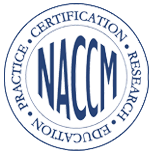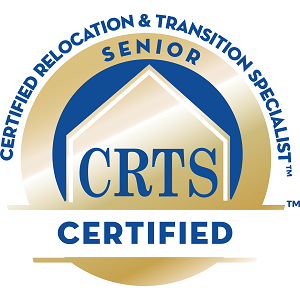National PTSD Awareness Day: How it Connects to Alzheimer’s
On June 27 each year, we recognize National PTSD Awareness Day, which brings attention to the vast number of individuals and communities affected by Post-Traumatic Stress Disorder (PTSD). This day also falls within Alzheimer’s Awareness Month, highlighting the connection between these two conditions.
While PTSD and Alzheimer’s are distinct conditions, there is evidence of a link between the two. Individuals with PTSD have been found to have an increased risk of developing Alzheimer’s later in life. This connection underscores the importance of raising awareness for both conditions and investing in research to better understand their causes and potential treatments.
What is PTSD?
Post-Traumatic Stress Disorder (PTSD) is a mental health condition that can affect individuals who have experienced or witnessed a traumatic event. It is estimated that approximately 7-8% of people will experience PTSD at some point in their lives, with rates being higher among certain populations, including veterans who have served in combat.
PTSD can significantly impact seniors’ lives, especially those who have experienced trauma earlier in life. As individuals age, they may become more vulnerable to experiencing new or recurring traumatic events, such as illness, injury, or loss of a loved one. Additionally, seniors may be more likely to experience symptoms of PTSD due to cognitive and physical changes associated with aging.
This condition can have a profound impact on quality of life, affecting individuals’ ability to function in day-to-day activities and maintain relationships. Common symptoms of PTSD include flashbacks, nightmares, anxiety, and avoidance behaviors, which can interfere with social interactions and enjoyment of life. It is vital to recognize the impact of PTSD and to seek help if needed, as treatment and support can significantly improve outcomes for individuals with this condition.
An Overview of National PTSD Awareness Day
National PTSD Awareness Day is an opportunity to raise awareness about PTSD and reduce the stigma associated with seeking treatment. People can join the cause by hosting events in their communities, sharing stories on social media, and encouraging those around them to seek help if they are suffering from either condition. We can also spread awareness by learning about the signs and symptoms of PTSD and helping others understand the importance of early diagnosis for both conditions.
Raising awareness about PTSD is important because it is often misunderstood and can have a significant impact on an individual’s mental and physical health. Those who suffer from PTSD may experience a range of symptoms, including flashbacks, nightmares, anxiety, and depression, which can affect their ability to lead a fulfilling life. National PTSD Awareness Day provides an opportunity to educate the public about PTSD, reduce stigma, and encourage individuals to seek help if they are struggling.
The Connection Between PTSD and Alzheimer’s Disease
Research has revealed a strong correlation between Post-Traumatic Stress Disorder (PTSD) and Alzheimer’s disease. One study showed that veterans with PTSD were twice as likely to develop dementia and Alzheimer’s later in life than those without the disorder. Additionally, there is evidence that individuals with PTSD have reduced volume in the hippocampus, a brain region important for memory and learning, which may be a contributing factor to the development of Alzheimer’s disease.
It’s important to note that there is no direct cause-and-effect relationship between PTSD and Alzheimer’s–only a correlation. However, further research into this link would be beneficial to better understand why individuals with PTSD may be more vulnerable to developing the condition.
It is also essential for those with PTSD to take proactive steps to reduce any potential risk of Alzheimer’s disease by engaging in healthy lifestyle habits such as regular exercise, a balanced diet, and stress management techniques. Doing so may help to protect against potential cognitive decline in the future.
Resources for PTSD Treatment and Support
Individuals with PTSD should seek professional help to manage their symptoms and reduce any potential risk of developing Alzheimer’s disease later in life. With the proper support and treatment, individuals with PTSD can find ways to manage their symptoms and lead a healthy, fulfilling life.
Several treatment options are available for individuals with PTSD, including therapy and medication. Cognitive-behavioral and exposure therapy are two types of therapy that have been found to be effective in treating PTSD. Medications such as antidepressants and anti-anxiety medications can also help manage symptoms.
Support groups and community resources can also be helpful for individuals with PTSD and their families. If you or someone you know needs support for PTSD, the National Center for PTSD and the National Alliance on Mental Illness are great resources to start with.
Reducing the Risk of Alzheimer’s
While there is no known cure for Alzheimer’s disease, there are things that individuals can do to reduce their risk of developing the disease. These tips are especially important for those affected by PTSD, who are at a greater risk of developing Alzheimer’s.
- Seek treatment for PTSD: Addressing PTSD symptoms and managing stress levels can help reduce the risk of developing Alzheimer’s disease.
- Stay physically active: Regular exercise can improve overall health and reduce the risk of cognitive decline.
- Maintain a healthy diet: Eating a balanced diet rich in fruits, vegetables, whole grains, and lean protein can help reduce the risk of developing Alzheimer’s disease.
- Engage in mentally stimulating activities: Keeping the brain active with activities such as reading, puzzles, or learning a new skill can help reduce the risk of cognitive decline.
- Stay socially connected: Maintaining social connections can help reduce the risk of cognitive decline and improve overall well-being.
Overall, it is important to remember that small lifestyle changes can greatly reduce the risk of Alzheimer’s and that seeking treatment and support for mental health conditions like PTSD is crucial for maintaining cognitive function and overall health.
How a Care Manager Can Help
In conclusion, the connection between PTSD and Alzheimer’s disease underscores the importance of early intervention and comprehensive care for seniors affected by these conditions. While reducing the risk of developing Alzheimer’s through healthy lifestyle choices is crucial, addressing the needs of those already living with the disease is equally important.
A care manager can play a crucial role in this process by supporting and guiding seniors with Alzheimer’s and their families. Care managers can help navigate the complex healthcare system, coordinate medical appointments and care, and provide emotional support and resources to families.
At Reflections Management and Care, we understand the challenges faced by families affected by Alzheimer’s and PTSD. Our team of experienced care managers is dedicated to providing compassionate, personalized care and support to seniors and their families. Contact us today to learn more about how we can help.














